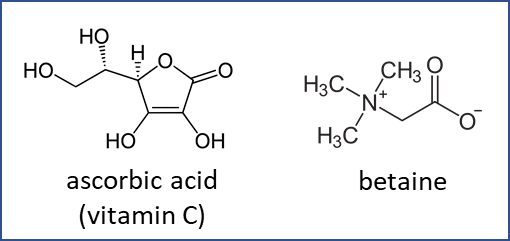The drug was a combination of betaine and ascorbic acid (vitamin C), prescribed to reduce liver and vascular affections. The association was reputed to reduce the levels of hepatic lipids. Both compounds exert anti-oxidative effects and show a synergistic effect to reduce accumulation of lipids (fat) in the liver. It is no longer used to day, but betaine remains largely used as an antioxidant and anti-inflammatory agent, useful to combat fatty liver disease (steatosis). Notably, it is hepatoprotective and can attenuate liver injury caused by excessive alcohol drinking. Betaine exerts effects on glucose metabolism, and facilitate the redistribution of body fat. It is a well-established supplement used in animal production, to facilitate the hepatic metabolism (fatty acid oxidation and carbohydrate metabolism) in animals.
Betaine is a water-soluble quaternary amine-type compound widely existing in food, such as wheat germ, beet, spinach, shrimp and wolfberry. This affordable and well-tolerated compound is considered useful to reduce the progression of nonalcoholic fatty liver disease (NAFLD). It can be found in many food/drug supplement proposed to maintain liver health.




